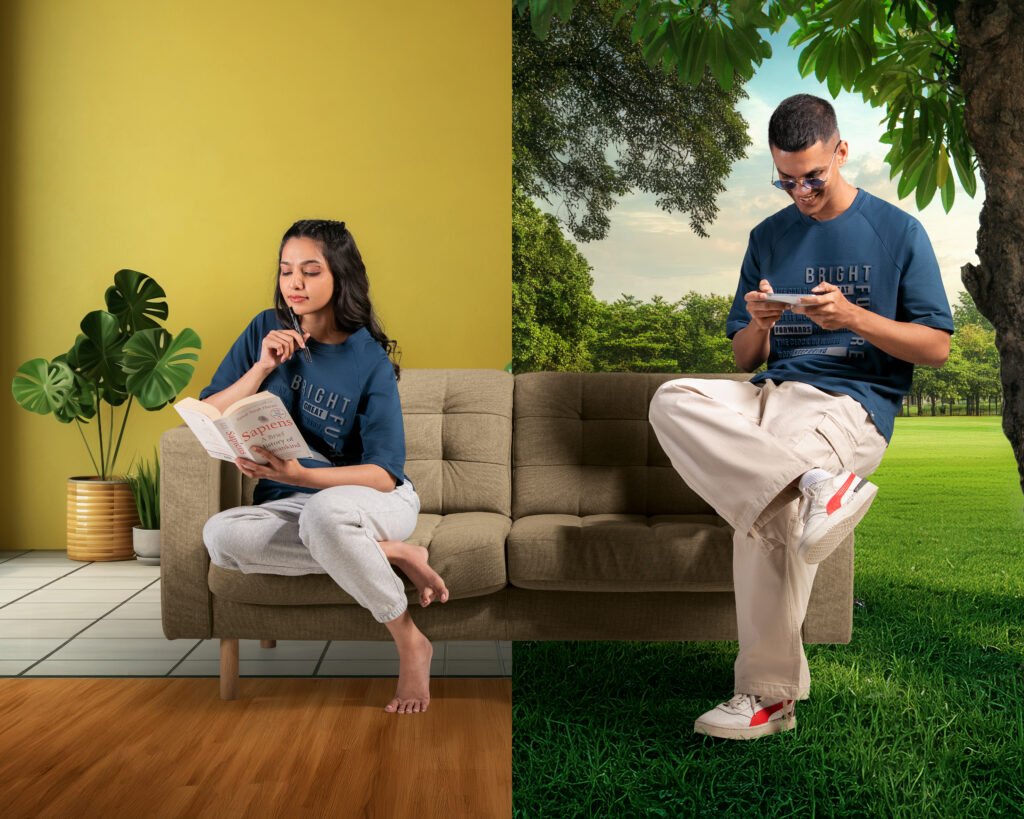Uncategorized
How comfort matters in what we wear everyday ?
Comfort is absolutely paramount in what we wear, and it impacts us on multiple levels. It’s not just about feeling physically cozy; it plays a significant role in our mood, confidence, productivity, and even our health. Here’s a breakdown of why comfort matters so much in our clothing choices:
1. Physical Well-being:
Freedom of Movement: Comfortable clothing allows for a full range of motion without restriction or chafing. This is crucial for everyday activities, exercise, and overall physical health. Tight or ill-fitting clothes can hinder movement and even lead to pain or discomfort.
Breathability: Fabrics that breathe, like cotton, linen, or bamboo, allow air to circulate, keeping us cool and preventing overheating. This is especially important in warm climates or during physical activity. Synthetic fabrics that don’t breathe well can trap heat and moisture, leading to skin irritation and discomfort.
Temperature Regulation: Comfortable clothing helps us maintain a comfortable body temperature. Layering allows us to adapt to changing conditions. In contrast, uncomfortable clothing might leave us too hot or too cold.
Pain Prevention: Poorly designed or ill-fitting clothing can contribute to back pain, neck pain, or other physical discomfort. For example, shoes that don’t provide proper support can lead to foot pain and problems with posture.
2. Psychological Well-being:
Confidence: When we’re comfortable in our clothes, we feel more confident and self-assured. We’re not distracted by pinching seams or itchy fabrics, allowing us to focus on the task at hand and interact more comfortably with others.
Mood: Uncomfortable clothing can make us irritable, anxious, and distracted. Conversely, comfortable clothing can boost our mood and create a sense of well-being.
Stress Reduction: Tight or restrictive clothing can contribute to feelings of stress and anxiety. Comfortable clothing, on the other hand, can have a calming effect.
3. Productivity and Focus:
Reduced Distractions: When we’re physically uncomfortable, it’s hard to concentrate. Itchy fabrics, tight waistbands, or shoes that pinch can be constant distractions, hindering our ability to focus on work, study, or other tasks.
Increased Efficiency: Comfortable clothing allows us to move freely and focus on what we need to do without being hampered by physical discomfort.
4. Health Considerations:
Skin Health: Breathable fabrics are essential for maintaining healthy skin. Tight or restrictive clothing can trap moisture and irritate the skin, potentially leading to rashes or other skin problems.
Circulation: Clothing that is too tight can restrict blood circulation, which can have negative health consequences.
5. Personal Expression and Style:
Authenticity: True personal style is often rooted in comfort. When we feel comfortable in our clothes, we’re more likely to express our authentic selves through our fashion choices.
Effortless Style: Comfortable clothing often looks more natural and effortless. Trying too hard to wear something uncomfortable can make us appear stiff and unnatural.
In summary, comfort is not just a luxury; it’s a fundamental need when it comes to clothing. Prioritizing comfort allows us to feel good, look good, and perform at our best. It’s about finding the balance between style and comfort so that we can feel confident and comfortable in our own skin.

